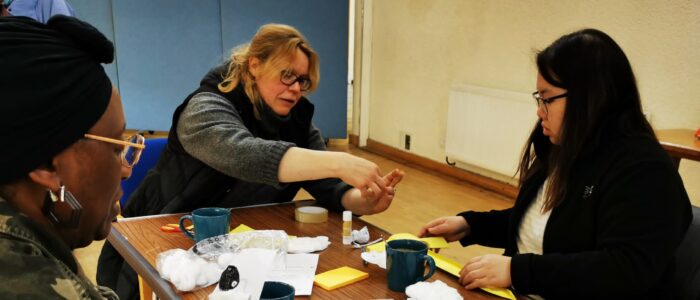Why ‘having your cake and eating it too’ is not a healthy option for the NHS

The government is in the process of launching a series of consultations and public engagement exercises regarding the healthcare system. I have been in a number of meetings where officials have pointed out that the timing of these programmes, during the summer, is at best incompetent and at worst outright conniving. So many of us with children have work during the summer that does not fall into the usual patterns, and gathering responses from groups to the various consultations is simply unlikely to happen in the summer months.
However, we are where we are, and I was disappointed to see the instant response in one of the papers on the issue of ‘healthcare tourism’. I am not going to make any firm judgement on whether those who visit our shores should get free access to healthcare and the wider welfare state, for that is a topic for a much lengthier piece. However, the outcry seemed to be directed at any kind of change or reform. The point is we can no longer afford the system we have as a nation unless we substantially increase its income. So, the choices are to increase taxes for health and welfare – remember the largest part of welfare is pensions – or decrease costs somehow, which should be done through preventative work or increased efficiency.
This examination of how much overseas visitors should pay and how the system should extract this money led me to ask the team if the whole exercise was worth it. How much do we spend in this area? How much can we get back? Is this merely a tabloid policy – not about real solutions, but about making a noise? As you have guessed, there were no firm answers, there were no figures.
 The NHS is in danger of becoming a secular religion. Don’t get me wrong, I think it’s a great achievement. I remember, many years ago, when we had an American youth group visiting us, one of the lads had a fall and broke his arm. Off we went to A&E and he had to sit down and wait for treatment. The group’s leader reached for his credit card and asked me who he could pay to get through the system faster. I felt somewhat proud that there was equality of experience in the A&E, but, of course, very embarrassed that the process took so needlessly long, with staff that had less hustle in them than your average fast-food joint. However, with David Cameron’s stated commitment to the N-H-S – as the three letters which summed up his priorities – we have moved a system that needs to adapt, to move to a ‘beloved aunty’ status. When the NHS played such a key role in the launch of the London 2012 Olympics, the stage was set for unreasonable adoration.
The NHS is in danger of becoming a secular religion. Don’t get me wrong, I think it’s a great achievement. I remember, many years ago, when we had an American youth group visiting us, one of the lads had a fall and broke his arm. Off we went to A&E and he had to sit down and wait for treatment. The group’s leader reached for his credit card and asked me who he could pay to get through the system faster. I felt somewhat proud that there was equality of experience in the A&E, but, of course, very embarrassed that the process took so needlessly long, with staff that had less hustle in them than your average fast-food joint. However, with David Cameron’s stated commitment to the N-H-S – as the three letters which summed up his priorities – we have moved a system that needs to adapt, to move to a ‘beloved aunty’ status. When the NHS played such a key role in the launch of the London 2012 Olympics, the stage was set for unreasonable adoration.
If we are too nostalgic about any institution, we fail to see when it has to change. The welfare state is somewhat a victim of its own success; when old-age pensions at 65 were introduced, the average life expectancy for men was 62. It may have looked very altruistic, but the logic was that most men would not live to enjoy pension, harsh as it may be. The health system was supposed to lead to better health, not this prolonged symptom management. Healthcare costs continue to rise as people live longer, creating more expenses for the public purse through both pensions and health care. We have to consider some changes.
It is great that people are living longer, but we need to find ways that to ensure that, even though people retire, their contribution to society is still appreciated and valued. We need to see multi-generational community re-found; retirement is merely a stage of a new phase of life.
So what about those spiralling costs? There is a mythical thinking that the rich should pay more, pay their ‘fair share’. Firstly, who determines the rich? What is their fair share? Surely by this logic, they should get a tax break for using the private care system and not clogging up the NHS. That’s fair, isn’t it? Technically, it is their money, not the state’s money, just waiting to be taxed.
 We do like the idea of people contributing; the original pre-1914 national insurance enshrined this principle. Most continental systems have the same principle. ‘Obamacare’ is on the basis of contributions.
We do like the idea of people contributing; the original pre-1914 national insurance enshrined this principle. Most continental systems have the same principle. ‘Obamacare’ is on the basis of contributions.
What is clear is that we cannot just say someone else has to do something! I suspect we will need to raise income, make savings by making efficiencies, and reshape healthcare to a more preventative model. But there will not be instant tabloid lead fixes. We will all need to play a part, visitors will need to pay, we will need let go our preoccupation with the local hospital and instead turn to more proactive primary health, where we looks for community based solutions, whether this be in local settings or socialisation opportunities. After all, as it has been said, ‘A problem becomes a crisis when there is no friend to call on…’



